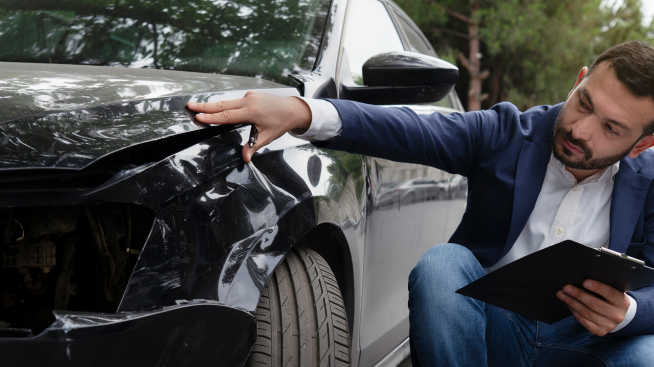What is comprehensive insurance coverage?

The world of car insurance is full of a lot of different coverage options and terms that you may not be familiar with. One such term that you’re likely to encounter at some point is “comprehensive coverage.” But what is comprehensive insurance coverage, and how can you tell if it’s something you may need? Let’s find out.
What does comprehensive insurance cover?
Comprehensive coverage is aptly named, as it covers a wide range of damages to your vehicle, such as:
- Theft of the car itself
- Vandalism
- Fire damage
- Water damage
- Animal damage (like hitting a deer)
- Natural disasters (such as a tornado)
- Random objects hitting your car (like a tree branch or rock hitting your car)
Comprehensive coverage does not cover damage related to collisions. Collision coverage, as the name might suggest, typically covers the costs of damage from a collision with another car or object. Neither comprehensive nor collision coverage provide protection for damage to other people or their property. This is where auto liability coverage comes in, and this coverage is mandatory in most states.
Financed car insurance requirements
If you own your car outright, comprehensive coverage is typically optional, and you can choose to forgo it if you wish. If you're leasing or financing a car, however, it’s likely you’ll be required by the lender or lessor to have comprehensive insurance on the vehicle. In many cases, you’ll be required to get both comprehensive and collision coverage on the car, as these help to protect the lender’s interest in the vehicle.
Considerations for purchasing comprehensive insurance
If you’ve paid off your car already, you may not be required to carry comprehensive insurance coverage. When weighing your options, here are a few considerations:
- Comprehensive insurance covers you against a wide variety of events, some of which may be cost prohibitive to remedy out of pocket.
- Comprehensive coverage may help repair or replace your vehicle when faced with damage resulting from non-collision related causes, regardless of who is at fault.
- Depending upon the age and value of your vehicle, you may want to weigh whether spending the extra money for comprehensive coverage makes financial sense.
In summary
When asking “What is comprehensive insurance coverage?” it may help to remember what it isn’t. Comprehensive insurance won’t cover damages resulting from a collision with another car or object. It also won’t cover damage to other people or their property. Comprehensive insurance will, however, cover damage to your car from many other perils, including fire, flooding, theft, vandalism, natural disasters and more. While this coverage does add to your overall costs, it can help provide peace of mind against a multitude of adverse events.



